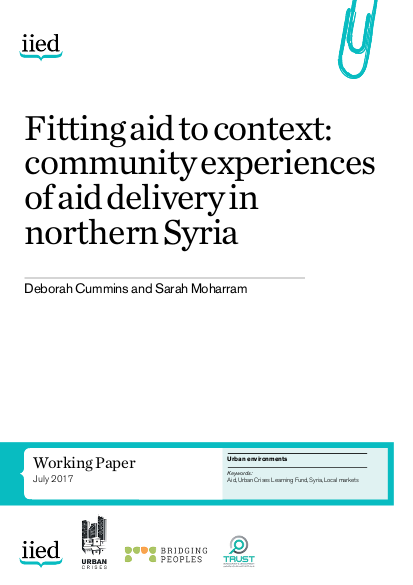
The ongoing conflict in Syria has left 13.5 million Syrians in need of humanitarian assistance. Several local and international organisations provide aid to northern Syria, but their chosen modalities fail to effectively meet community members’ needs. While aiming to respond to immediate short-term needs, this research demonstrates that these modalities also tend to distort markets and undermine local urban economies. Current approaches to aid provision are yet to reflect economic adaptation in Syrian cities, failing to support and build on existing local resources, capacities and strengths. A shift from mainstream programming to include more contextualised market-based approaches is vital to fill this gap in aid provision.
Links
Resource collections
- Innovation
- UN Habitat - Urban Response Collection
- Urban Response - Urban Crisis Preparedness and Risk Reduction
- Urban Response Collection - Community Engagement and Social Cohesion
- Urban Response Collection - Economic Recovery
- Urban Response Collection - Environment and Climate Change
- Urban Response Collection - Housing, Land and Property
- Urban Response Collection - Urban Crisis Response, Recovery and Reconstruction
- Urban Response Collection - Urban Resilience